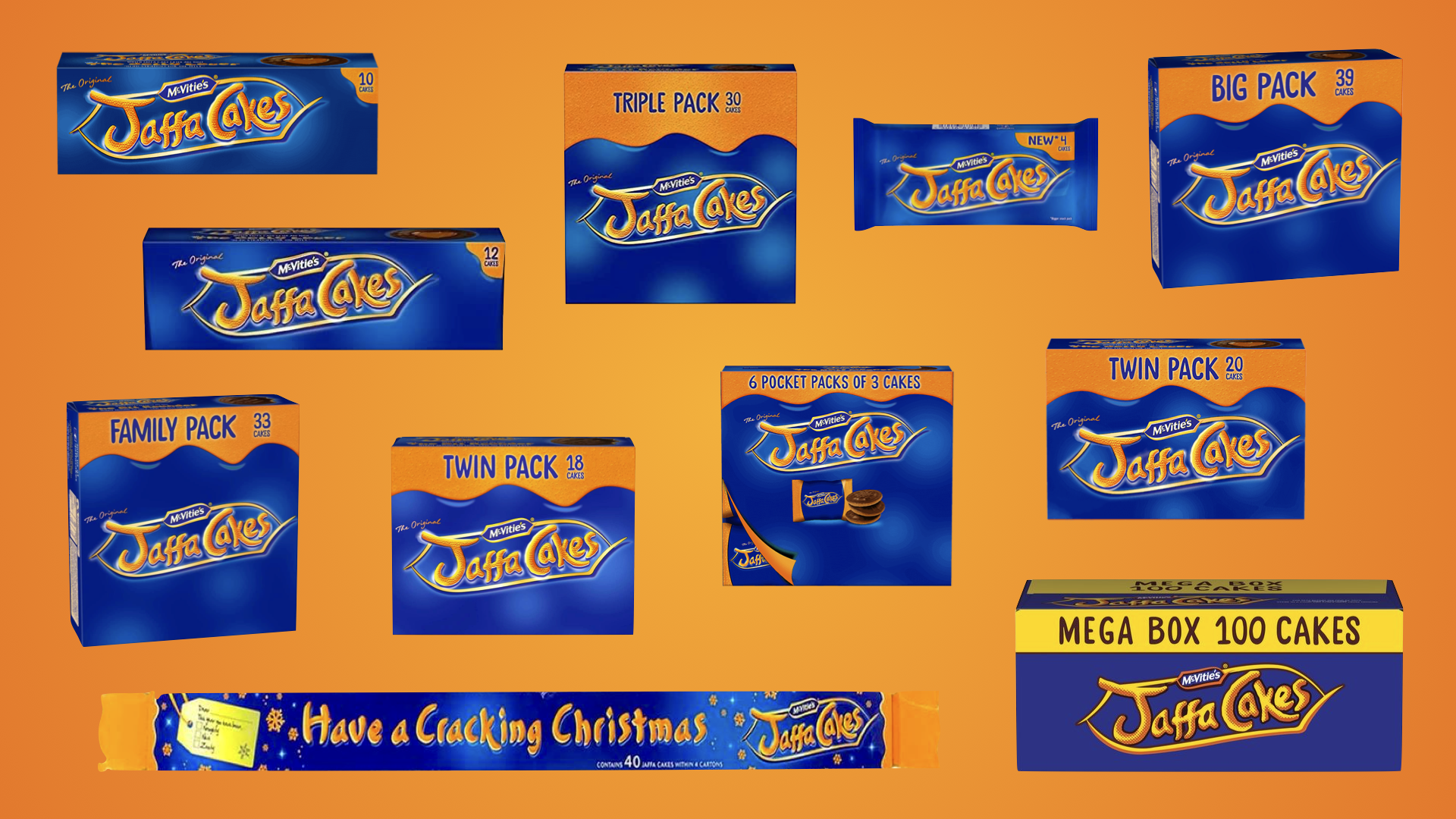Jaffa Cake economics
Three lessons in behavioural economics from the little sponge cakes with the smashing orangey bit.
17 February 2021

One of the first things they teach you about in Econ 101 is homo economicus and his infinite capacity to make rational, optimal decisions.
This works great in textbooks, where it makes lots of economic models neater and easier to solve. In the real world, however, people are much more complicated. There’s a whole field of study called behavioural economics that seeks to better understand what’s going on.
Smart companies use behavioural economics to their advantage, nudging our decisions toward the ones they do best out of.
Your local supermarket is full of this stuff once you know where to look. My personal favourite is the Jaffa Cakes section — the team at McVities are playing on expert mode, and they’re not afraid to hide it.
Here are three ways they use behavioural economics to help sell you more delicious light sponge cakes with dark crackly chocolate and a tangy orange centre:
-
Increasing your cognitive load. Rational economic man has no problem comparing different price / quantity combinations to figure out which is the best value for money. You probably wouldn’t either in a straight shootout between packs of 10, 20 or 30. Now try working it out in your head when you’re in a hurry and the options are 4, 10, 18 or 33… Damn. A lot of people will either settle for a deal they think is good enough (economists call this satisficing) or just assume the biggest pack is the best value (which isn’t always the case).
-
Overwhelming you with options. Rational economic man has no problem choosing between lots of similar alternatives — more choice is almost always a good thing, as extra options are either irrelevant or help him get closer to his optimal outcome. In reality people often find too much choice difficult to handle and opt for mental shortcuts like habit (familiarity bias) or copying others (herd behaviour).1 Now scroll back to the image at the top of this post for a moment and tell me it doesn’t stress you out just looking at it…
-
Manipulating your frame of reference. Rational economic man knows his utility function perfectly and selects things on their merits, rather than on how they compare to the alternatives being discarded. In reality people are easily influenced by the range of choices on offer, and sometimes even by the order in which they are presented (economists call this anchoring). Left to your own devices you might have chosen the 20 pack — but now you know about the (frankly ridiculous) 100 pack, the 33 pack starts to look positively restrained.
OK, that’s you all set for your next trip to the Jaffa Cakes aisle. Just steer clear of the zany new flavours — they’re only on the shelf to distract you!